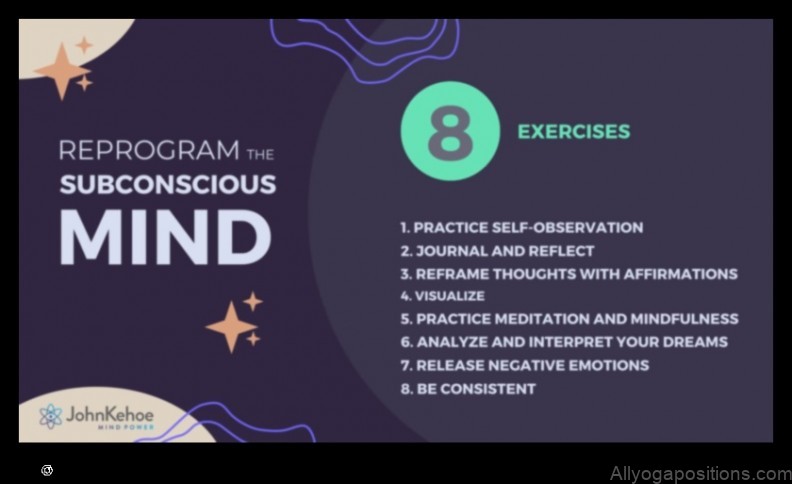
Meditation and Dreams: Exploring the Subconscious Mind
Meditation is a practice that has been shown to have many benefits for both physical and mental health. It can help to reduce stress, anxiety, and pain, and it can improve mood, focus, and sleep. Meditation can also help to increase self-awareness and mindfulness, which can be helpful in exploring the subconscious mind.
The subconscious mind is the part of our mind that stores our thoughts, feelings, and memories that we are not consciously aware of. It is often said to be the source of our creativity, intuition, and dreams. Meditation can help us to access the subconscious mind and to gain a deeper understanding of ourselves.
There are many different ways to meditate, and the best way for you will depend on your individual needs and preferences. Some common meditation practices include mindfulness meditation, mantra meditation, and guided meditation.
If you are interested in exploring the benefits of meditation for dreaming, here are a few tips:
- Start by practicing meditation for a few minutes each day. You can gradually increase the length of your meditation sessions as you become more comfortable with the practice.
- Focus on your breath during meditation. This can help to quiet your mind and to bring your attention to the present moment.
- Allow your thoughts to come and go without judgment. This will help you to let go of any distractions and to relax into the meditation practice.
- If you have a dream that you would like to explore, you can focus on that dream during meditation. Imagine yourself back in the dream and allow yourself to experience the emotions and sensations that you felt during the dream.
Meditation can be a powerful tool for exploring the subconscious mind and for having more meaningful dreams. By practicing meditation regularly, you can learn to relax your mind, to focus your attention, and to access your inner wisdom.
References:
- Meditation for improving sleep: A systematic review and meta-analysis
- Meditation for improving mental health: A systematic review and meta-analysis
- Meditation for improving psychological well-being: A systematic review and meta-analysis
| Feature | Description |
|---|---|
| Meditation | A mind-body practice that involves focusing attention on the present moment. |
| Dreams | A series of thoughts, images, and sensations that occur during sleep. |
| Subconscious mind | The part of the mind that stores memories, emotions, and instincts. |
| Mindfulness | A state of awareness in which you are paying attention to the present moment, without judgment. |
| Self-awareness | The ability to understand one’s own thoughts, feelings, and motivations. |

II. What is meditation?
Meditation is a practice that involves focusing the mind on a particular object, thought, or activity in order to achieve a state of calm and awareness.
There are many different types of meditation, but all share the goal of quieting the mind and allowing the practitioner to become more present and aware.
Meditation has been shown to have a number of benefits for both physical and mental health, including reducing stress, anxiety, and depression; improving sleep; and boosting creativity and focus.
III. How does meditation affect dreams?
Meditation has been shown to have a number of effects on dreams, including:
- Increased dream recall
- Increased vividness of dreams
- Increased dream control
- More positive dreams
- Less nightmares
These effects are thought to be due to the fact that meditation helps to quiet the mind and promote relaxation. When the mind is relaxed, it is more likely to enter the dream state and to experience vivid and positive dreams.
In addition, meditation can help to improve dream recall by strengthening the connection between the conscious and subconscious minds. When the conscious and subconscious minds are more connected, it is easier to remember dreams after waking up.
Overall, meditation can be a helpful tool for improving dream quality and recall. If you are interested in exploring your subconscious mind through dreams, meditation can be a great way to do so.

IV. Benefits of meditation for dreaming
Meditation has been shown to have a number of benefits for dreaming, including:
- Increased dream recall
- More vivid dreams
- Deeper, more restful sleep
- Reduced stress and anxiety
- Improved mood
- Enhanced creativity
- Increased self-awareness
These benefits are due to the fact that meditation helps to quiet the mind and relax the body, which creates a more conducive environment for dreaming. When the mind is calm and relaxed, it is more likely to produce vivid, memorable dreams.
Meditation can also help to reduce stress and anxiety, which can often lead to nightmares. By reducing stress and anxiety, meditation can help to create a more positive and peaceful dream environment.
In addition, meditation can help to improve mood and enhance creativity. When the mind is calm and relaxed, it is more likely to produce positive thoughts and feelings, which can lead to more enjoyable dreams. Meditation can also help to increase creativity by allowing the mind to wander freely and come up with new ideas.
Finally, meditation can help to increase self-awareness. By paying attention to the present moment and observing our thoughts and feelings, meditation can help us to become more aware of ourselves and our place in the world. This increased self-awareness can lead to a deeper understanding of our dreams and their meaning.
V. How to meditate for better dreams
Meditation can help you have better dreams by:
- Relaxing your mind and body
- Increasing your awareness of your thoughts and feelings
- Creating a more positive mindset
- Improving your sleep quality
Here are some tips for meditating for better dreams:
- Find a quiet place where you won’t be disturbed for 15-30 minutes.
- Sit in a comfortable position with your back straight and your eyes closed.
- Focus on your breath and let your thoughts come and go.
- If you find your mind wandering, gently bring your attention back to your breath.
- Continue meditating for as long as you like.
After you’re done meditating, take a few minutes to relax and reflect on your experience.
You may also want to keep a dream journal to record your dreams and track your progress.
6. Common dream themes and their meanings
Dreams can be a powerful way to explore our subconscious minds. They can reveal our hopes, fears, and desires, and can help us to understand ourselves better.
Some common dream themes include:
- Trauma or conflict: Dreams about trauma or conflict can be a way for us to process difficult experiences. They can help us to understand the events that have happened to us, and to come to terms with them.
- Relationships: Dreams about relationships can reveal our feelings about the people in our lives. They can show us how we see ourselves in relation to others, and can help us to improve our relationships.
- Goals and aspirations: Dreams about goals and aspirations can show us what we are working towards in life. They can help us to stay motivated and focused, and to achieve our goals.
- Fears and anxieties: Dreams about fears and anxieties can help us to identify the things that we are afraid of. They can help us to confront our fears, and to overcome them.
- Creative expression: Dreams can be a way for us to express our creativity. They can allow us to explore our imaginations, and to come up with new ideas.
Dreams can be a valuable source of information about ourselves. By paying attention to our dreams, we can learn more about our thoughts, feelings, and motivations. We can also use dreams to help us to solve problems, to make decisions, and to achieve our goals.
VII. Using meditation to lucid dream
Lucid dreaming is the ability to control your dreams. It is a state of consciousness in which you are aware that you are dreaming, and you can control the events that happen in your dream. Lucid dreaming can be a powerful tool for self-exploration and personal growth. It can also be used to solve problems, heal trauma, and improve creativity.
Meditation can be a helpful tool for lucid dreaming. Meditation can help you to relax and focus, which are both important for lucid dreaming. Meditation can also help you to become more aware of your thoughts and feelings, which can make it easier to recognize when you are dreaming.
If you are interested in learning how to lucid dream, there are a number of resources available online and in libraries. There are also a number of books and courses that can teach you how to lucid dream.
Here are some tips for using meditation to lucid dream:
- Meditate regularly. The more you meditate, the easier it will be to become aware of your dreams.
- Focus on your breath during meditation. This will help you to relax and focus.
- Pay attention to your thoughts and feelings during meditation. This will help you to become more aware of your inner world.
- Visualize yourself lucid dreaming. This will help you to prepare for the experience of lucid dreaming.
- Reality check regularly. This will help you to check if you are dreaming.
Lucid dreaming can be a challenging but rewarding experience. If you are willing to put in the time and effort, it is possible to learn how to lucid dream.
Using meditation to lucid dream
Lucid dreaming is the ability to control your dreams and become aware that you are dreaming. It is a state of consciousness in which you are aware that you are dreaming, and you can control the content of your dreams. Lucid dreaming can be a powerful tool for self-exploration and personal growth. It can also be used to improve your mental health and well-being.
There are a number of ways to induce lucid dreams. One way is to practice meditation. Meditation can help you to relax and focus, which can make it easier to become lucid in your dreams. There are a number of different meditation techniques that you can use to induce lucid dreams. Some of the most popular techniques include mindfulness meditation, yoga nidra, and mantra meditation.
If you are interested in learning more about lucid dreaming, there are a number of resources available to you. You can find books, articles, and online courses on the subject. You can also find lucid dreaming groups and forums where you can connect with other people who are interested in lucid dreaming.
Lucid dreaming can be a safe and rewarding experience. However, it is important to be aware of the risks involved. Lucid dreaming can sometimes lead to sleep paralysis, which is a temporary state of paralysis that can occur when you are waking up or falling asleep. Sleep paralysis can be frightening, but it is not dangerous. If you experience sleep paralysis, it is important to relax and wait for it to pass.
Lucid dreaming can also be a challenging experience. It can take time and practice to learn how to lucid dream. However, if you are persistent, you will eventually be able to experience the many benefits of lucid dreaming.
IX. Tips for having a better dream experience
Here are some tips for having a better dream experience:
- Keep a dream journal. Writing down your dreams as soon as you wake up can help you to remember them better and to identify patterns in your dreams.
- Meditate before bed. Meditation can help to relax your mind and body, which can make it easier to fall asleep and to have more vivid dreams.
- Create a relaxing bedtime routine. This could include taking a warm bath, reading a book, or listening to calming music.
- Avoid caffeine and alcohol before bed. These substances can interfere with sleep and make it more difficult to have vivid dreams.
- Get enough sleep. Most adults need around 7-8 hours of sleep per night. When you don’t get enough sleep, it can lead to fragmented sleep and less vivid dreams.
X. FAQ
Q: What is the difference between meditation and lucid dreaming?
A: Meditation is a practice that helps you to focus your attention and become more aware of your thoughts and feelings. Lucid dreaming is the ability to control your dreams and explore your subconscious mind.
Q: How can meditation help me to have better dreams?
A: Meditation can help you to relax and clear your mind, which can make it easier to have vivid and memorable dreams. It can also help you to become more aware of your dreams and to learn how to control them.
Q: What are some common dream themes and their meanings?
A: Common dream themes include flying, falling, being chased, being naked, and being in a relationship. These themes can often reflect our fears, desires, and unresolved conflicts.
Table of Contents
Maybe You Like Them Too
- Yoga for Emotional Release A Path to Youthfulness
- Yoga for Emotional Healing Affirming Your Way to a Better You
- Yoga for Emotional Release A Guide to Energetic Clearing
- Yoga for Emotional Wellness Mindful DrummingA mindful approach to drumming that can help you relieve stress, improve focus, and connect with your inner self.
- Mindful Moments 5 Ways to Incorporate Meditation into Your Daily Life
